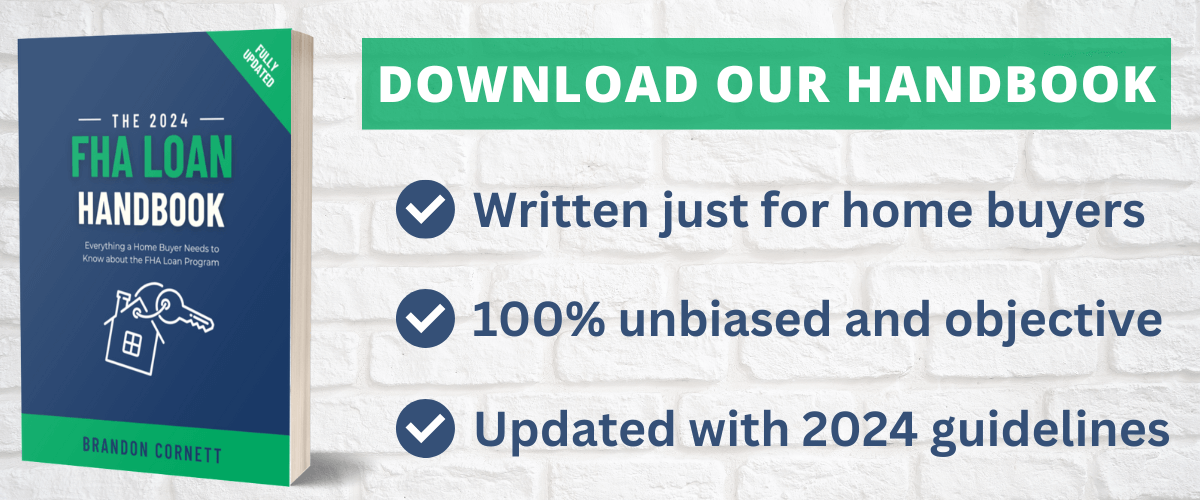Occasionally we receive questions from sellers regarding FHA loans. These folks usually want to know how they might be affected by working with a home buyer who is using an FHA loan. So we’ve compiled some of the most frequently asked questions to create a seller’s guide to FHA-insured mortgage loans.
Table of contents: 7 common questions from sellers:
1. How does an FHA loan affect the seller?
The property being purchased with an FHA loan must meet all of the minimum property requirements established by HUD (the federal department that oversees this program). But aside from that, FHA loans don’t affect sellers very much. It’s just another form of financing.
These loans tend to have a bad reputation among some sellers and listing agents. Not all of them, but some. We find that this reluctance often comes from misconceptions about how the program works. A home buyer using an FHA loan can be just as strong as one who is using a conventional or VA loan to buy a house.
From a seller perspective, the most important thing is to evaluate each offer in terms of its overall strength and merits. Depending on the situation, the best offer might come from an FHA borrower, or one using a conventional loan.
2. Does HUD require both a home inspection and appraisal?
The Federal Housing Administration requires a home appraisal to be completed when an FHA loan is being used. But they do not require an inspection.
Appraisals and inspections are two different things. An appraiser is mostly concerned with determining the market value of a particular house, while the inspector focuses on evaluating the home’s overall condition.
FHA home appraisals are somewhat unique, in the sense that the appraiser wears “two hats.” He or she must determine the current market value of the property, in addition to making sure that the home meets the minimum property requirements mentioned above.
3. Are FHA appraisals / inspections strict or hard to pass?
Some sellers (and real estate listing agents) believe that FHA home appraisals are overly strict or difficult to pass. This might be true for older homes with a lot of structural and/or safety issues.
But a property that’s in decent condition and is generally livable probably won’t raise any red flags when it comes to the FHA loan appraisal. Here’s an overview of what the appraiser looks at.
4. Do these loans create any problems for sellers?
We’ve partially answered this question already, when addressing previous topics. There is a widespread misconception that FHA loans somehow put a seller at a disadvantage, or that this type of mortgage is “bad” for sellers in general. For the most part, these misconceptions stem from the appraisal requirements mentioned above.
For example, a real estate listing agent might have a bad experience with a single FHA loan transaction. So he or she advises all future clients to avoid buyers who are using an FHA loan. That’s a disservice to the client, in our opinion. The truth is that FHA loans have a closing rate similar to that of conventional mortgages.
It bears repeating: a home that is generally in good condition and presents no hazards to the occupant should clear the FHA appraisal / inspection process with few issues.
5. Should I accept an offer from an FHA borrower?
Sellers who are serious about selling their home will evaluate all offers that come in, including those that are associated with an FHA loan.
With that being said, a competitive seller’s market might alter the equation a bit. In a hot real estate market, some homeowners tend to favor conventional mortgage loans over the government-backed programs like FHA.
From a mortgage perspective, it’s more important to ensure that the buyer has been pre-approved by a lender, rather than fussing over the type of loan being used. If a buyer makes a strong offer and has a pre-approval letter, it’s an offer worth considering. This is true regardless of what type of mortgage loan is being used.
6. Can the home seller refuse or turn down such an offer?
As a seller, you have the right to accept the offer that you think is most advantageous for you. The Fair Housing Act (summarized here) prevents sellers and landlords from discriminating based on race, color, religion, etc.
But there’s nothing that prevents you from choosing one buyer over another based on the perceived strength of their financing. It’s a business transaction after all. So yes, you can refuse an FHA loan if you feel it doesn’t meet your needs or expectations.
7. What are the closing costs for sellers?
HUD allows sellers (or “interested parties”) to contribute money toward the buyer’s closing costs. Whether or not you choose to do that is up to you. Those details are typically determined during the negotiating stage and written into the real estate purchase agreement.
Generally speaking, HUD allows sellers to contribute up to 6% “of the sales price toward the Borrower’s origination fees, other closing costs and discount points.” All of this is outlined in HUD Handbook 4000.1, also known as the Single Family Housing Policy Handbook.
These are some of the most common questions sellers have regarding FHA loans. If you have a question that is not included above, feel free to send it to us via email.
